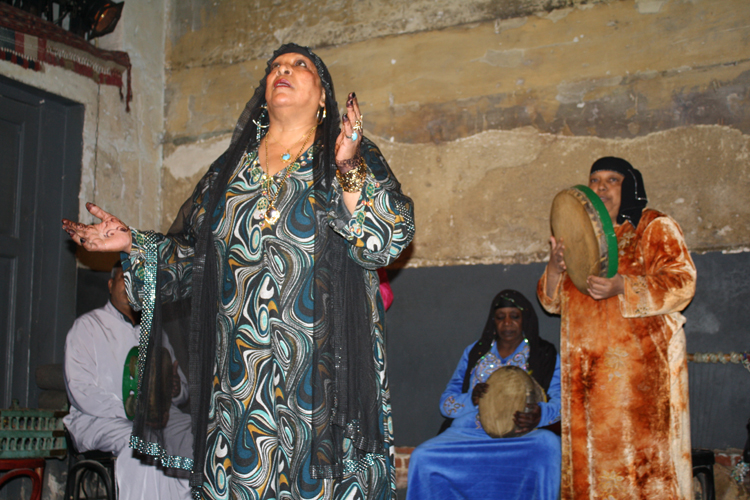Cairo offers an opportunity for visitors to see Egypt’s remaining vestiges of an East African practice known as a zar ritual. It is no longer legal in Egypt to conduct zar rituals; however, it is still possible to see performances of the music used for them.
About the Zar Ritual
A zar is a spirit which is believed to inhabit people, especially women. When the woman’s life is in balance, she and the spirit can coexist in peace. However, sometimes the woman begins to suffer stress, become irritable, or fall ill. In those cases, in order for her to recover, it may be necessary to appease the zar spirit. The purpose of a zar ritual is to perform that appeasement.
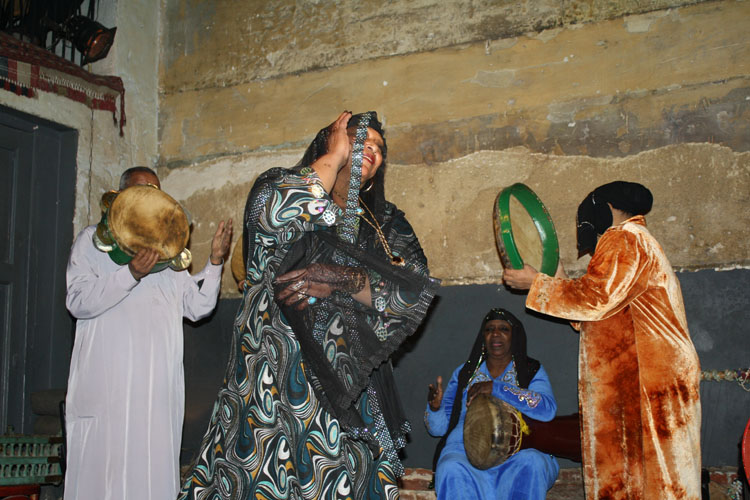
In a traditional zar ritual in Egypt, a woman would surround herself with other women who are a meaningful part of her life: sisters, cousins, friends, etc. They would sacrifice a chicken, and engage a band of musicians capable of performing the specialty music required for the ritual.
According to tradition, there are many different zar spirits which can inhabit a person. Each such spirit responds to a different song and rhythm. The musicians would perform several different songs, aiming to find the music required to appease the particular spirit that has inhabited the woman. As the music progresses, the participants are drawn into a state of ecstatic dance.
The Mazaher Ensemble
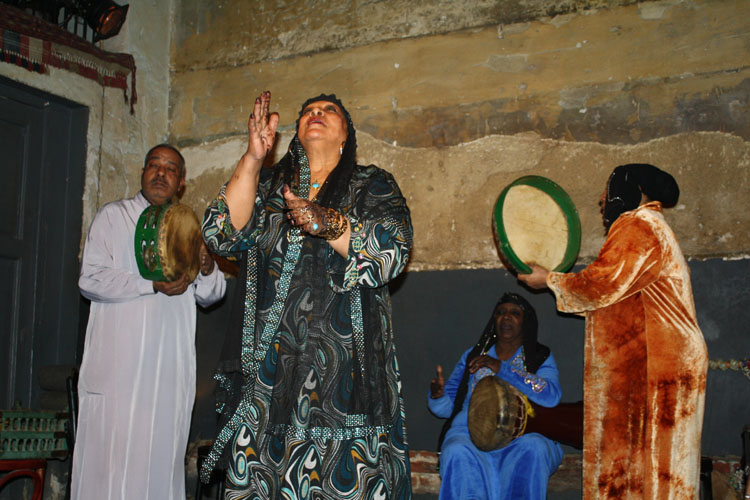
The Mazaher ensemble are among the final zar practitioners in Egypt. Although the law no longer allows them to conduct full zar ceremonies, it is possible to hear them perform concerts of the music that accompanies the ceremonies. I have seen them perform several times at the Makan Theater in Cairo. It is a captivating show, and I always enjoy seeing it again whenever I return to Egypt.
The lead singer, standing in front, is Rayyisah Madiha, often known as Umm Sameh (“mother of Sameh”).
Show Format
The show has varied a bit from one time I’ve seen it to another. The primary segment consists of Cairo zar music, with vocals by Umm Sameh, accompanied by the other women on drums. Another segment I have seen every time is described as a Nubian zar, which features different music and instruments in order to reach the different regional spirits associated with southern Egypt and Sudan.
Other details of the show have varied from one year to the next. For example, when I saw the show in 2016, Sameh performed a solo of Sufi music, but other times when I’ve seen the show he did not do so.
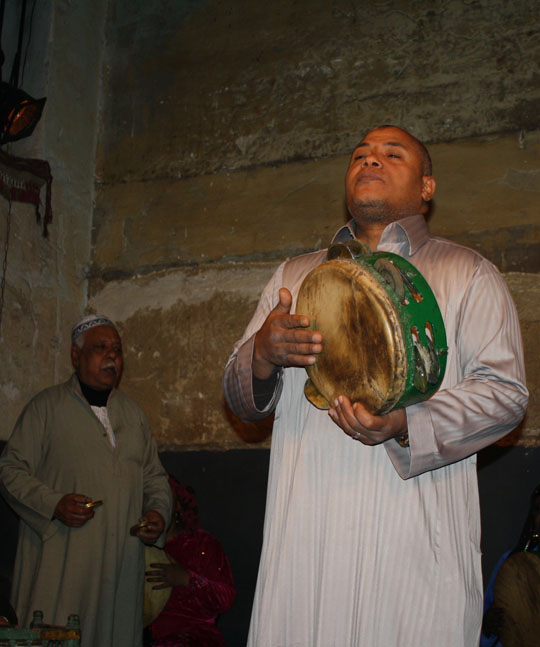
Nubian Zar
Nubia is the region spanning southern Egypt and the Sudan. The Nubian zar uses different instruments from those used for the Cairo-based zar, and the spirits it targets are different.
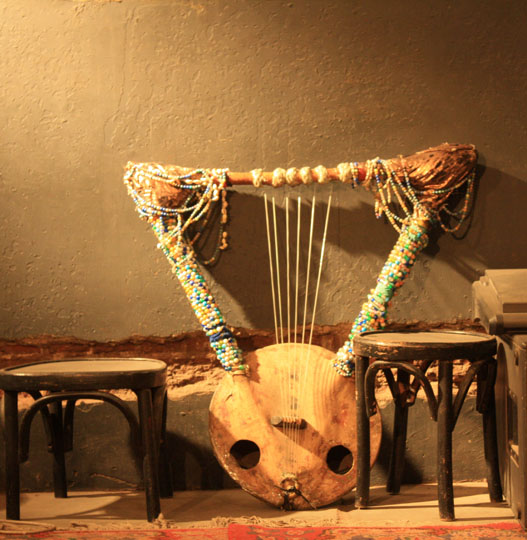
The tamboura, a type of lyre, is shown in the photo above. It is particularly typical of Nubian music; not only for Nubian zar rituals, but also for secular folk music.
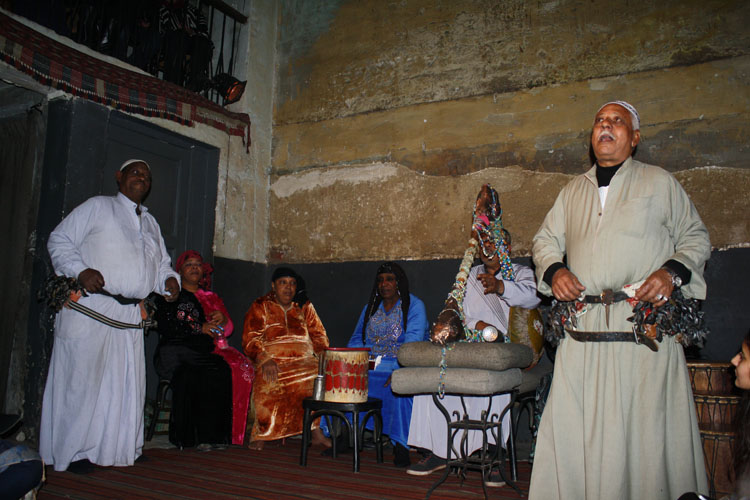
For the Nubian section of the show, one of the musicians picks up the tamboura to play it, as shown by the man seated in the back, wearing the white gallabiya. The belt that the two other men strap around their hips is known as a mangour.
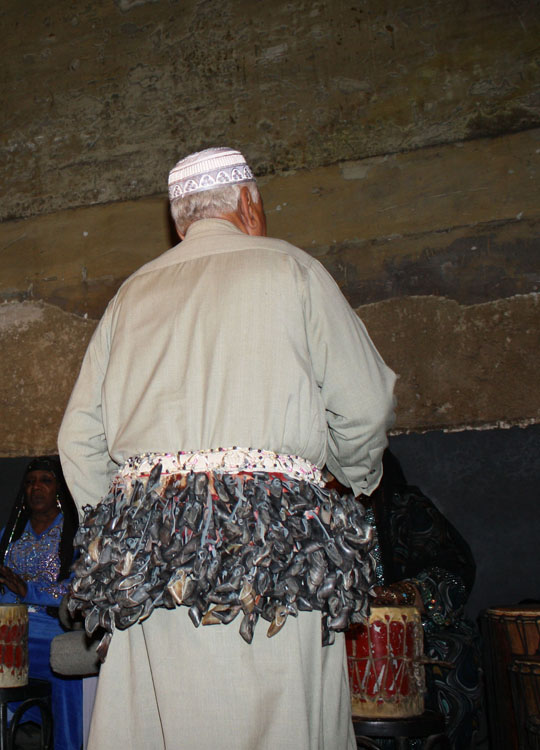
The mangour is a percussion instrument constructed from attaching many small goat hooves to a backing of fabric or leather. The men shake their hips in a rhythmic fashion, causing the goat hooves to strike each other, producing a rattling sound.
In the photo below, the men are not only shaking their hips to make noise with the mangour, they are also using handheld rattles.
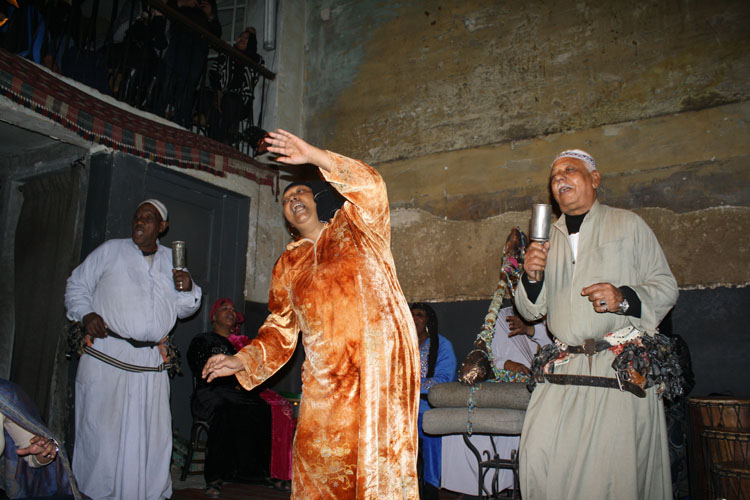
Posing with the Star
When I saw the show in 2016, Madiha graciously agreed to pose for a photo with me after it was over. It can be difficult to get a photo with her, because of how many people swarm her after the show seeking photos as I did!
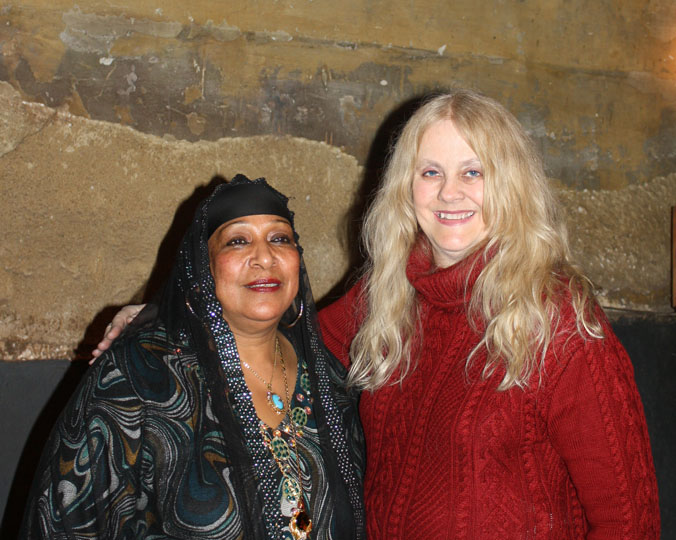
About the Makan Theater
The Makan Theater, which hosts the Mazaher Ensemble’s zar music shows, is at 1 Saad Zaghloul St. El Dawaween 11461 Cairo. Their telephone number is +202 2792 0878, and email address is [email protected]. In addition to presenting the Mazaher Ensemble shows, they have also offered other shows of traditional Egyptian music, including Sufi music, Nubian, and more.
To Learn More About Zar
There is a series of three music CD’s that I recommend if you’d like to listen to zar music in your home. Each of these CD’s comes with a different informative booklet with detailed information about zar traditions. If you search for them online, look for the artist name of Awlad Abou al-Gheit:
- Zar: Trance Music for Women
- Zar 2: Tumboura
- Zar 3: Harim Masri
Also, I recommend the book Trance Dancing with the Jinn: The Ancient Art of Contacting Spirits Through Ecstatic Dance by Yasmin Henkesh. Yasmin is a meticulous researcher whom I respect highly.
About My Egypt Travels
For several of my trips to Egypt, I have traveled with Sahra Kent, through her Journey Through Egypt program. The Makan Theater is one of the places I have discovered through traveling with her. I highly recommend the Journey Through Egypt program to anyone who is interested in a cultural perspective of Egypt.
